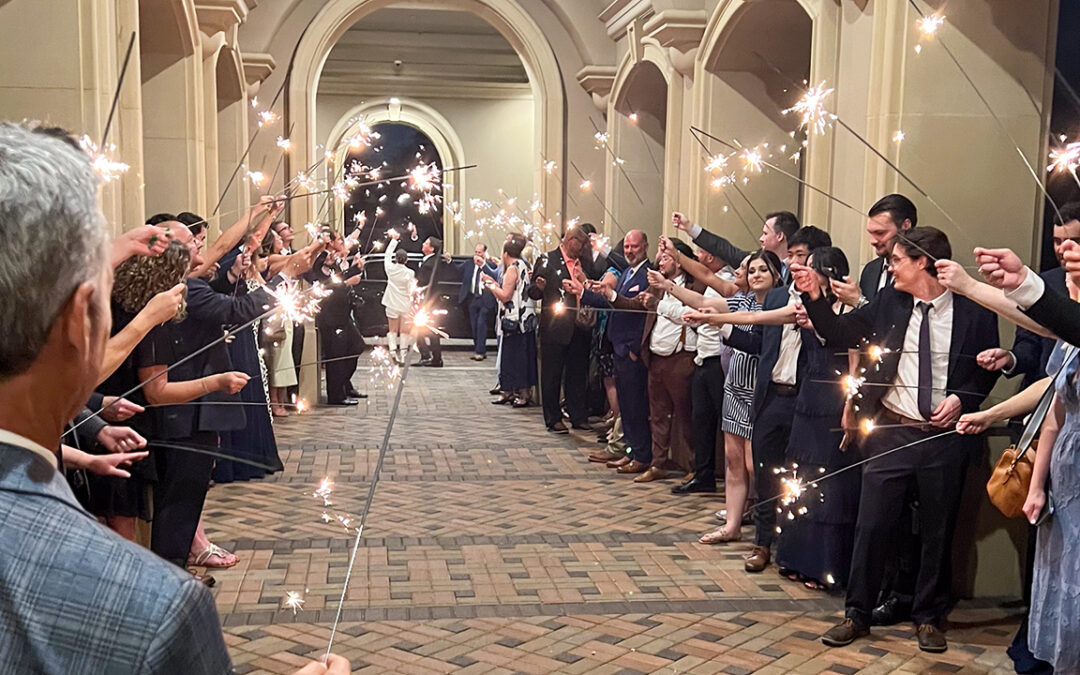I have not posted a blog in the last three weeks because I have been to hell and back. I traveled to the darkest place I’ve ever been, and then returned to a place of joy, laughter, love and light.
I went on a trip through World War II in Germany, Czechoslovakia, and Poland, and then returned to witness my son’s wedding and its explosion of joy.
History as dates, places and times is taught and graded, but only the imagination can bring it to life and give it meaning.
In Poland, at the end of our trip, I went to Auschwitz, the concentration camp.
Auschwitz had the most efficient business plan I have ever seen.
I stood at the exact location where the trains emptied, and a guard made an instantaneous decision, pointing either left or right. To the left went children and their mothers (if their mothers could not work) to the gas chambers. To the right went men and women who could be worked to death. The life expectancy of those who could work was pre-calculated to be three months. Excess food was not waisted on them since there was an endless supply of new labor coming off the trains each day. They killed thousands upon thousands of these people each week.
Inside the camp today, there are multiple display cases. Behind the glass of the display cases are piles of clothes, shoes or pots and pans, which had been carried by the executed. In one display case, among the scattered clothing, there was a little pair of red children’s shoes unbuckled. In another, a perfectly intact three-foot-long braid of hair cut from the scalp of a young child. It had a light blue bow still in place at the end.
It seemed impossible to me that the neighborhoods of little country houses outside the camp did not know what was happening in there as the trains rolled in and crematoriums belched smoke that fouled the air. Could they not hear the cries of children as their parents were separated from them or of the families who came to realize that they were not being taken to a safe place outside of Germany as promised, but were living their last moments before they would die.
I was reminded of a time when I was still practicing law, when I was hired to represent a slaughterhouse in a zoning dispute. The slaughterhouse was comprised of two buildings in a suburban neighborhood in Baltimore County.
There was a little house where the business offices were located, and there was a two-story building, which had a ramp that zigzagged up to a door where three cows were lined up head to tail, waiting in line motionless.
The slaughterhouse owners were Christians, and I was introduced to a rabbi who was hired to insure that the process was kosher. I was given the tour of the site in preparation for the trial and I traveled up the ramp that held the three cows and then into the building. I remember doing a double take as I noticed the eyes of the lead cow. I saw that they were wide-eyed and afraid.
Inside the door, I passed the carcasses which had been stripped of their skin and hung swaying on hooks headless as they were carried by a conveyor belt to the efficient butchers, who cut the meat into steaks, fillets, rib roasts, and further down the line, ground beef.
Two days later, I returned from Europe and flew to Houston, where I presided over the rehearsal dinner celebrating my son’s wedding the following day.
The bridesmaids had known each other since high school. Months before, they had celebrated common birthdays together on a weeklong trip to Paris. They were destined to be lifelong friends. My son’s friends had also gone to school or college together and shared comparable deep friendships. The joy and humor of this collective group as they mingled the day before the wedding was palpable and full of laughter and love and friendship on so many levels.
After the wedding ended, the bride and groom traveled into their new life down a runway that was lined on both sides with family and friends holding sparklers.
On the flight home from the wedding, I could not forget the story I was told by our guide at Auschwitz when I asked, “did anyone ever escape?” He replied, “Only the Polish prisoners would occasionally get away because Auschwitz was in a Polish neighborhood where the prisoners could disappear and be exported out of hell by their friends.

